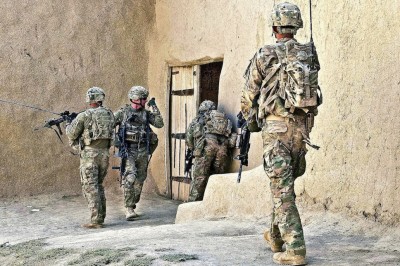NATO Attacked Afghan Health Clinic in Serious War Crime

NATO forces raided a health clinic, detained people inside and used the building to house detained Afghan insurgents in breach of Geneva Conventions
US-led NATO forces attacked a health clinic in Afghanistan, stormed the building, damaged equipment, detained those inside and turned it into a temporary jail and military base, in a grave violation of the laws of war.
The incident occurred in October in Wardak province, according to the aid group that runs the clinic, the Swedish Committee for Afghanistan.
“The soldiers knocked down a wall to enter the building, damaged doors, windows, examination beds and other equipment, and detained clinical staff and civilians inside,” reports the Guardian‘s Emma Graham-Harrison from Kabul. ”And for the next two and a half days they brought dozens, maybe hundreds of prisoners through the clinic, using it as a jail, logistics hub and for mortar fire, contravening the Geneva conventions, which protect medical centres.”
“The protection of medical persons and facilities, and respect for their neutrality was one of the founding principles of international humanitarian law,” Erica Gaston, a human rights lawyer and senior program officer at the US Institute of Peace, told theGuardian.
“This latest incident is a serious violation…if true, it’s incredible to me that they not only raided this clinic but that [NATO] command allowed them to continue occupying it for days afterwards.”
The Swedish Committee said it complained to NATO’s International Security Assistance Force (ISAF) and they admitted the takeover violated international laws, but said it was a mistake.
But apparently this incident isn’t so out of the ordinary.
Andreas Stefansson, the Swedish group’s director, told the Guardian that ”Most NGOs who deliver healthcare in this country experience this almost on a monthly basis; that there are breaches in different provinces, where the Afghan National Army, or ISAF, or special forces basically don’t show the level of respect they should for health facilities.”

